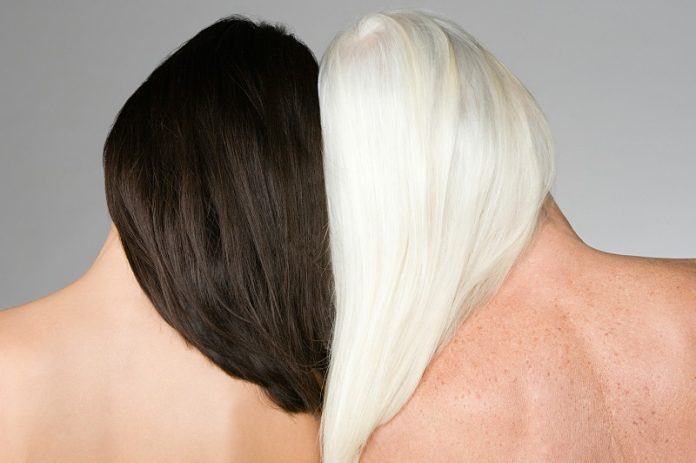
A new study suggests that hormones might one day be used to prevent or treat visible signs of aging, like wrinkles and gray hair. The research, published in the journal Endocrine Reviews by the Endocrine Society, reviews the latest findings on how hormones affect the skin and hair as we age.
Until now, only a few hormones have been used in medicine to slow skin aging. These include retinoids like retinol and tretinoin, often found in anti-aging creams, and estrogen, which is sometimes prescribed to reduce skin aging caused by menopause.
But this new review highlights a broader group of hormones that may also play important roles in keeping the skin and hair youthful.
Dr. Markus Böhm, a skin and hormone specialist from the University of Münster in Germany and lead author of the study, explained that their paper looks at how certain hormones influence key aging processes.
These include how the skin’s supportive tissues break down (causing wrinkles), how long stem cells survive (which affects skin renewal), and how pigment is lost (leading to gray hair).
According to Dr. Böhm, “Some of the hormones we studied appear to have strong anti-aging effects. In the future, they might be used to create new treatments to protect against aging skin and hair.”
The skin is our largest organ, and it ages in two main ways. One is natural aging over time, and the other is caused by external factors like sun exposure, pollution, and stress — a process known as “extrinsic aging.”
The study points out that skin is not just affected by hormones made elsewhere in the body. It also makes its own hormones, possibly more than any other body part besides the glands.
The researchers looked closely at several important hormones that seem to affect how our skin and hair age. These included insulin-like growth factor 1, growth hormone, estrogens, melatonin, and retinoids. Melatonin, in particular, stands out as a promising anti-aging substance.
It is already known for helping with sleep, but it also has antioxidant properties and may help protect skin cells from damage. Because it is small, cheap, and generally safe, melatonin could be a good ingredient in future skin care treatments.
The team also examined lesser-known hormones and hormone-like substances. These include:
- Alpha-melanocyte-stimulating hormone, which affects skin color.
- Hormones from the thyroid and brain that help regulate the skin’s response to stress.
- Oxytocin, sometimes called the “love hormone.”
- Endocannabinoids, which are found in cannabis-based products like CBD.
- Receptors involved in fat metabolism that may also protect the skin from sun damage.
These substances may help the skin fight harmful UV rays and prevent changes that lead to early aging and pigment problems.
Overall, the study suggests that more research into these hormones could lead to new ways to delay or even reverse skin aging. Some of these hormones may even help preserve hair color and slow down hair graying.
In conclusion, this research opens the door to a future where doctors and scientists might be able to use hormones in safe and controlled ways to help people keep their skin and hair looking younger. While most of these treatments are not available yet, this study highlights a growing understanding of how aging works and how hormones might help slow it down.
If you care about wellness, please read studies about nutrients that could combat inflammation in older people, and essential foods for healthy aging.
For more health information, please see recent studies about the link between processed foods and chronic diseases, and a simple diet change for a healthier life after 65.
The research findings can be found in Endocrine Reviews.
Copyright © 2025 Knowridge Science Report. All rights reserved.



